[Computer Networking] {CMU14-740} Lecture 13: Advanced Congestion Control at the Host (unfinished)
TCP is an interesting protocol for many reasons, one of which I find fascinating is that it can employ many different behavioral algorithms at the end points. This lecture is an example as it showcases many algorithms to control congestion. This is a small sample of published algorithms. Any TCP implementor may use different ideas (thus making it hard to be certain what is actually happening in your OS).

TCP-BIC uses a binary search to probe for additional bandwidth
Lesson Objectives
By the end of this lesson, the student will be able to:
- describe features of the following TCP congestion control variations: New Reno, Vegas, Hybla, BIC and Compound TCP.
- describe the advantages and disadvantages of delay-based variants.
- describe the challenges of congestion control for LFNs.
- describe the problems and attractions of a non-cooperative TCP implementation.
Slides
Video
Other Resources
- TCP Vegas: New Techniques for Congestion Detection and Avoidance [brakmo94.pdf]
- Issues in TCP Vegas [la99.pdf]
- TCP Hybla: a TCP Enhancement for Heterogeneous Networks [caini2004.pdf]
- TCP Congestion Control With a Misbehaving Receiver [savage99.pdf]
- A Compound TCP Approach for High-speed and Long Distance Networks [tan2006.pdf]
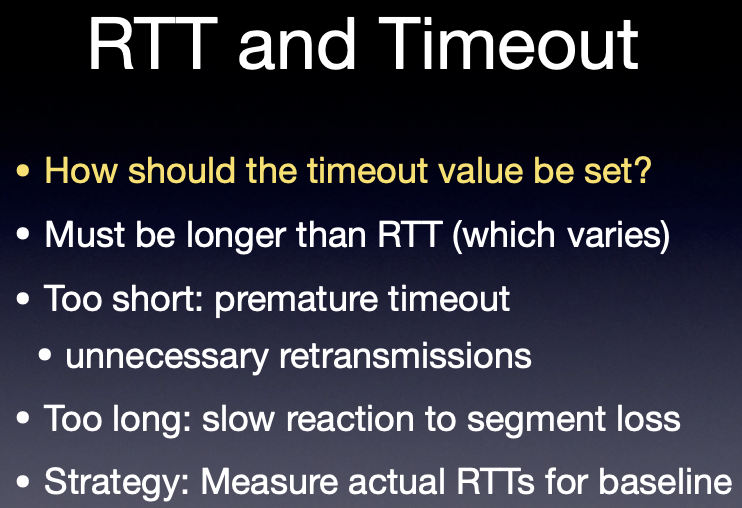
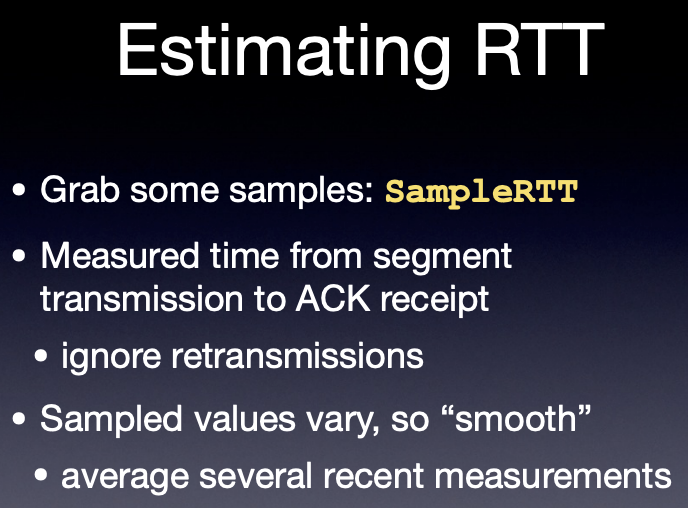

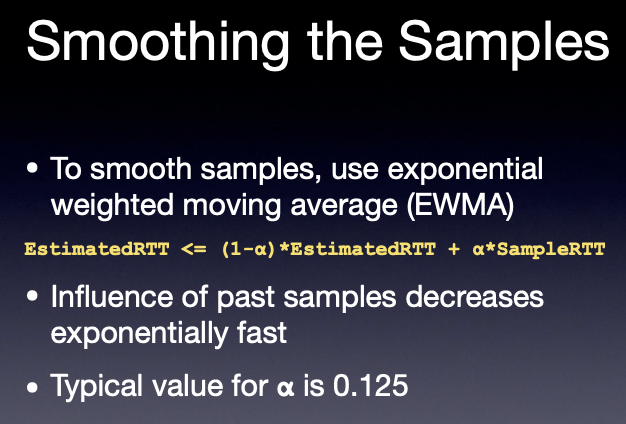
low pass filter
update the value with new sample, without saving the previous data => incremental way

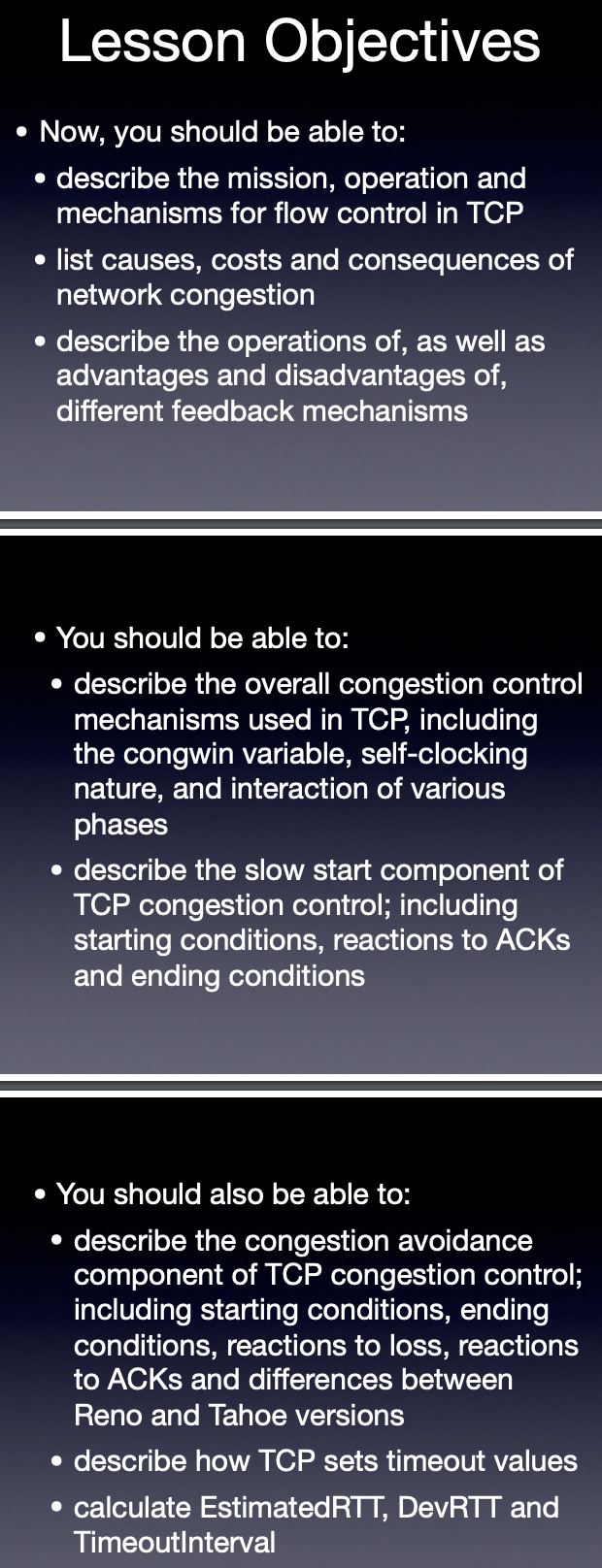
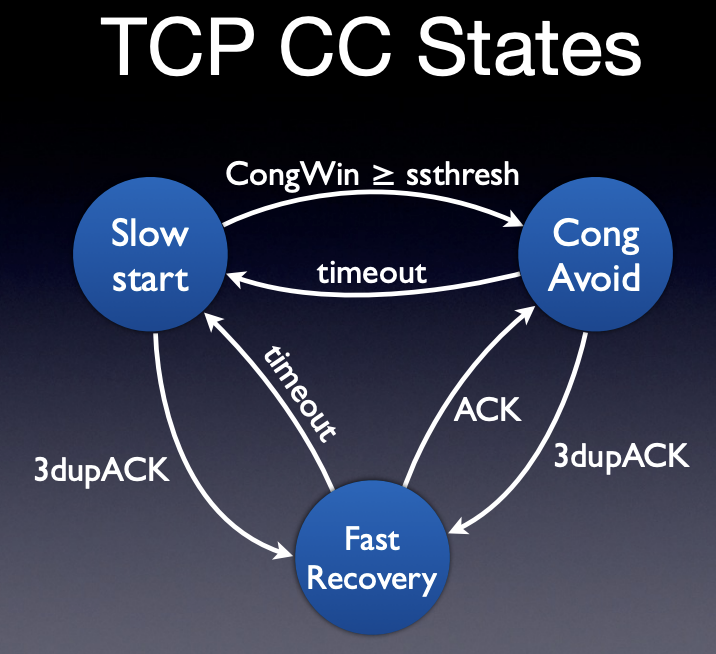
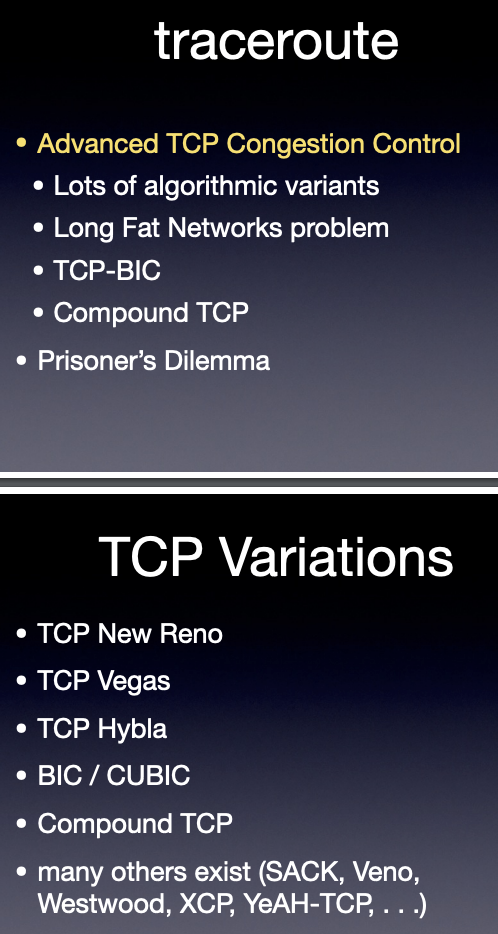
..........................



 浙公网安备 33010602011771号
浙公网安备 33010602011771号